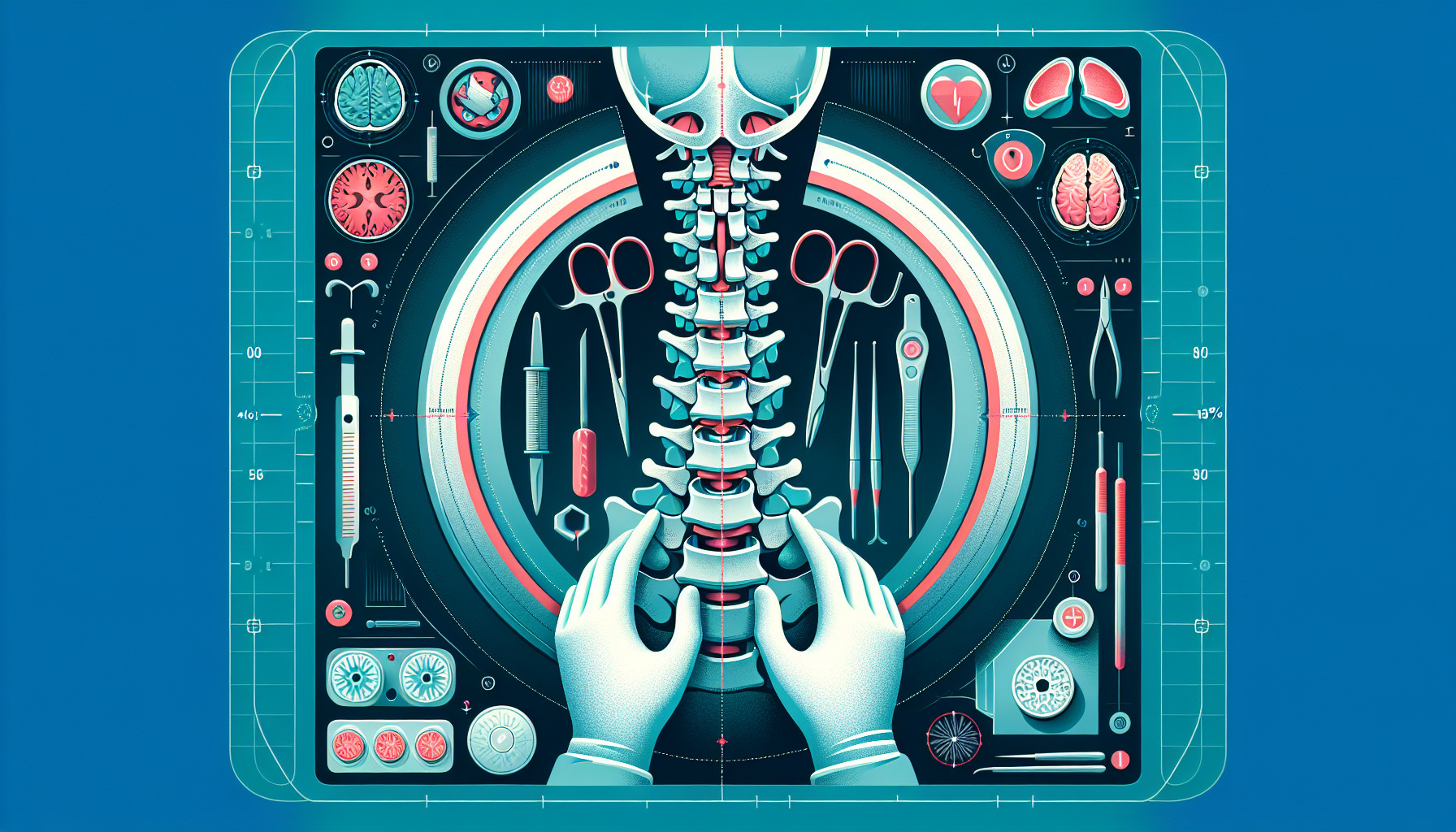Our Summary
This research paper is about the unplanned re-hospitalizations of adults with spine deformities after they have had corrective surgery. The study looked at adults who had a specific type of spine surgery between 2016 and 2019. They found that out of 3,628 patients, 15.2% had to go back to the hospital unexpectedly.
Most of the patients who returned to the hospital were older and had Medicare, while those who didn’t need to return had private insurance. Patients who came back to the hospital within 30 days of their surgery were generally frailer and had more health problems like high blood pressure, diabetes, and lung disease. They also had more complications from the surgery.
Patients who had to return to the hospital within 7 days had the longest initial hospital stays, while those who returned within 30 days had the highest treatment costs.
The study suggests that having more health problems and complications, as well as longer hospital stays and higher treatment costs, may make patients more likely to need to go back to the hospital after this type of surgery. The researchers suggest that future studies should look into these patterns more to help improve patient care and reduce the number of these unplanned hospital visits and their associated healthcare costs.
FAQs
- What percentage of adults had to return to the hospital unexpectedly after spinal surgery?
- What factors were common among patients who had to return to the hospital within 30 days of their surgery?
- What does the study suggest about the relationship between health complications, hospital stays, treatment costs, and the likelihood of needing to return to the hospital after surgery?
Doctor’s Tip
A doctor might advise a patient undergoing spinal fusion surgery to carefully follow post-operative instructions, including proper wound care, physical therapy, and medication management. It is also important for patients to maintain a healthy lifestyle, including regular exercise and a balanced diet, to support the healing process and reduce the risk of complications that may lead to re-hospitalization. Additionally, patients should communicate any concerns or changes in symptoms to their healthcare provider promptly to address any issues before they escalate.
Suitable For
Patients who are typically recommended spinal fusion surgery include those with severe spinal deformities such as scoliosis, kyphosis, or spondylolisthesis. These conditions can cause significant pain, difficulty with mobility, and potential nerve damage if left untreated. Patients who have not responded to conservative treatments such as physical therapy, medications, or injections may be recommended for spinal fusion surgery. Additionally, patients with spinal instability, spinal fractures, or degenerative disc disease may also be candidates for spinal fusion surgery. Ultimately, the decision to undergo spinal fusion surgery is made on a case-by-case basis by a spine surgeon after a thorough evaluation of the patient’s condition and medical history.
Timeline
Before spinal fusion surgery:
- Patient consults with a spine specialist to discuss treatment options
- Patient undergoes pre-operative testing and evaluations
- Patient may need to make lifestyle changes or physical therapy to prepare for surgery
- Surgery is scheduled and patient is given pre-operative instructions
After spinal fusion surgery:
- Patient is monitored closely in the hospital for a few days post-surgery
- Patient may experience pain and discomfort, and will be given pain medication
- Physical therapy and rehabilitation may begin in the hospital to help with recovery
- Patient is discharged from the hospital and continues recovery at home
- Follow-up appointments with the surgeon and physical therapist are scheduled for ongoing care
- Patient slowly resumes normal activities and may need ongoing physical therapy for several weeks to months
Overall, the timeline for a patient before and after spinal fusion surgery involves preparation, surgery, hospitalization, recovery, and ongoing follow-up care to ensure the best possible outcome.
What to Ask Your Doctor
- What are the potential risks and complications associated with spinal fusion surgery?
- How long is the typical recovery time after spinal fusion surgery?
- What can I do to help promote a successful recovery after surgery?
- Are there any specific restrictions or limitations I should be aware of after surgery?
- What signs or symptoms should I watch out for that may indicate a complication or need for further medical attention?
- How will my pain be managed after surgery?
- What follow-up appointments or monitoring will be necessary after surgery?
- Are there any alternative treatments or therapies that may be beneficial in conjunction with spinal fusion surgery?
- What is the expected outcome or prognosis following spinal fusion surgery?
- Are there any specific lifestyle modifications or changes I should consider after surgery to optimize my long-term health and well-being?
Reference
Authors: Elsamadicy AA, Sayeed S, Sadeghzadeh S, Serrato P, Ghanekar SD, Lo SL, Sciubba DM. Journal: Neurosurg Focus. 2025 Jun 1;58(6):E16. doi: 10.3171/2025.3.FOCUS2513. PMID: 40450870
